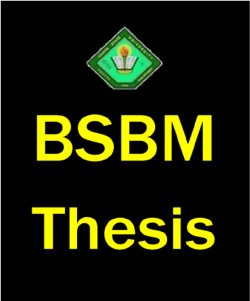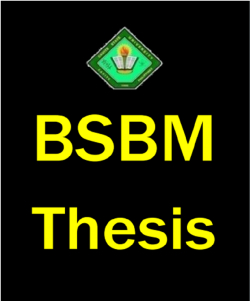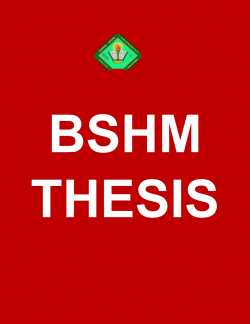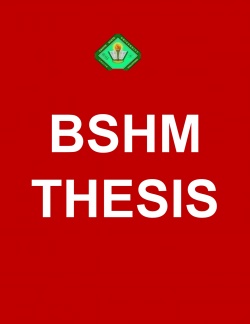Effectiveness of Financial Literacy Training Program of the Department of Management Studies to the Poverty Alleviation of Molino II Households.
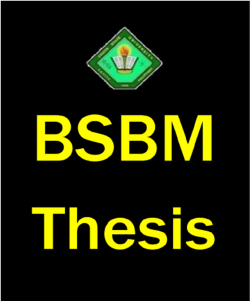
Type
Thesis
Authors
Category
Thesis-BSBM-HR
[ Browse Items ]
Publication Year
2024
Pages
xvi, 92p.
Subject
Poverty—Economic aspects.
Abstract
The study was conducted from July 2023 to January 2024 at Molino II Bacoor
Cavite. This research was designed to identify the demographic profile of the
respondents in terms of age, sex, and income. To determine the effectiveness of the
financial literacy training program of the Department of Management Studies in terms
of financial behavior, financial knowledge, and financial skills. To determine the help
of a financial literacy training program in alleviating poverty in Molino II households
regarding investment and savings. To evaluate the significant effect of the
demographic profile on the financial literacy training program of the Department of
Management Studies. Also, to evaluate the significant effect of the financial literacy
training program on the poverty alleviation of Molino II households. The researcher
utilized the quantitative method through a survey conducted using a total enumeration
sampling technique on 30 residents who participated in the program.
The results indicated financial behavior, knowledge, and skills improvement
among participating households. However, the program's impact on investment for
poverty reduction was minimal. Conversely, it effectively boosted savings as a tool for
alleviating poverty. Demographic factors (age, sex, income) did not significantly affect
the program's effectiveness.
The study highlights the effectiveness of financial literacy training programs in
enhancing financial behavior, knowledge, and skills. These improvements empower
individuals to manage money better, make informed decisions, and achieve financial
stability, ultimately helping them break the cycle of poverty. While investment
knowledge showed less effectiveness, savings knowledge emerged as the most
impactful strategy for poverty reduction. Age, gender, and income did not significantly
affect the program's impact on financial behavior, knowledge, or skills.
Therefore, the researchers recommend building responsible financial habits
through knowledge acquisition, behavior changes, and practical skill development. It
would empower individuals to manage their finances effectively and achieve economic
stability. Savings and investment training are crucial for breaking the cycle of poverty.
The DMS program can be improved by tailoring content to different age groups,
incorporating interactive learning methods, and offering digital accessibility.
Addressing gender disparities and equipping participants with practical skills beyond
knowledge is also essential. Also, it recommends a more inclusive program that
includes cultural relevance, diverse teaching methods, long-term support, and
partnerships with financial institutions and NGOs that will empower people to make
informed financial decisions and build a brighter future.
Cavite. This research was designed to identify the demographic profile of the
respondents in terms of age, sex, and income. To determine the effectiveness of the
financial literacy training program of the Department of Management Studies in terms
of financial behavior, financial knowledge, and financial skills. To determine the help
of a financial literacy training program in alleviating poverty in Molino II households
regarding investment and savings. To evaluate the significant effect of the
demographic profile on the financial literacy training program of the Department of
Management Studies. Also, to evaluate the significant effect of the financial literacy
training program on the poverty alleviation of Molino II households. The researcher
utilized the quantitative method through a survey conducted using a total enumeration
sampling technique on 30 residents who participated in the program.
The results indicated financial behavior, knowledge, and skills improvement
among participating households. However, the program's impact on investment for
poverty reduction was minimal. Conversely, it effectively boosted savings as a tool for
alleviating poverty. Demographic factors (age, sex, income) did not significantly affect
the program's effectiveness.
The study highlights the effectiveness of financial literacy training programs in
enhancing financial behavior, knowledge, and skills. These improvements empower
individuals to manage money better, make informed decisions, and achieve financial
stability, ultimately helping them break the cycle of poverty. While investment
knowledge showed less effectiveness, savings knowledge emerged as the most
impactful strategy for poverty reduction. Age, gender, and income did not significantly
affect the program's impact on financial behavior, knowledge, or skills.
Therefore, the researchers recommend building responsible financial habits
through knowledge acquisition, behavior changes, and practical skill development. It
would empower individuals to manage their finances effectively and achieve economic
stability. Savings and investment training are crucial for breaking the cycle of poverty.
The DMS program can be improved by tailoring content to different age groups,
incorporating interactive learning methods, and offering digital accessibility.
Addressing gender disparities and equipping participants with practical skills beyond
knowledge is also essential. Also, it recommends a more inclusive program that
includes cultural relevance, diverse teaching methods, long-term support, and
partnerships with financial institutions and NGOs that will empower people to make
informed financial decisions and build a brighter future.
Description
This study, conducted from July 2023 to January 2024 in Molino II, Bacoor, Cavite, aimed to assess the effectiveness of the Financial Literacy Training Program offered by the Department of Management Studies of Cavite State University – Bacoor City Campus. The program was evaluated in terms of its impact on the financial behavior, knowledge, and skills of 30 household participants. Findings revealed significant improvements in savings behavior, while investment knowledge had a minimal impact. The study found no significant influence of demographic factors (age, sex, income) on program effectiveness. The results underscore the potential of financial literacy programs in supporting poverty alleviation through behavior and knowledge enhancement, emphasizing the importance of tailored, accessible, and inclusive financial education efforts.
Biblio Notes
Buenviaje, A. M., Calijan, M. J. A., Castro, F. M. A., Jaso, C. J. E., & Morico III, A. (2024). Effectiveness of Financial Literacy Training Program of the Department of Management Studies to the Poverty Alleviation of Molino II Households (Undergraduate thesis). Cavite State University – Bacoor City Campus.
Number of Copies
1
| Library | Accession No | Call No | Copy No | Edition | Location | Availability |
|---|---|---|---|---|---|---|
| CvSU Bacoor City Campus | 4000347 | 1 | Yes |
